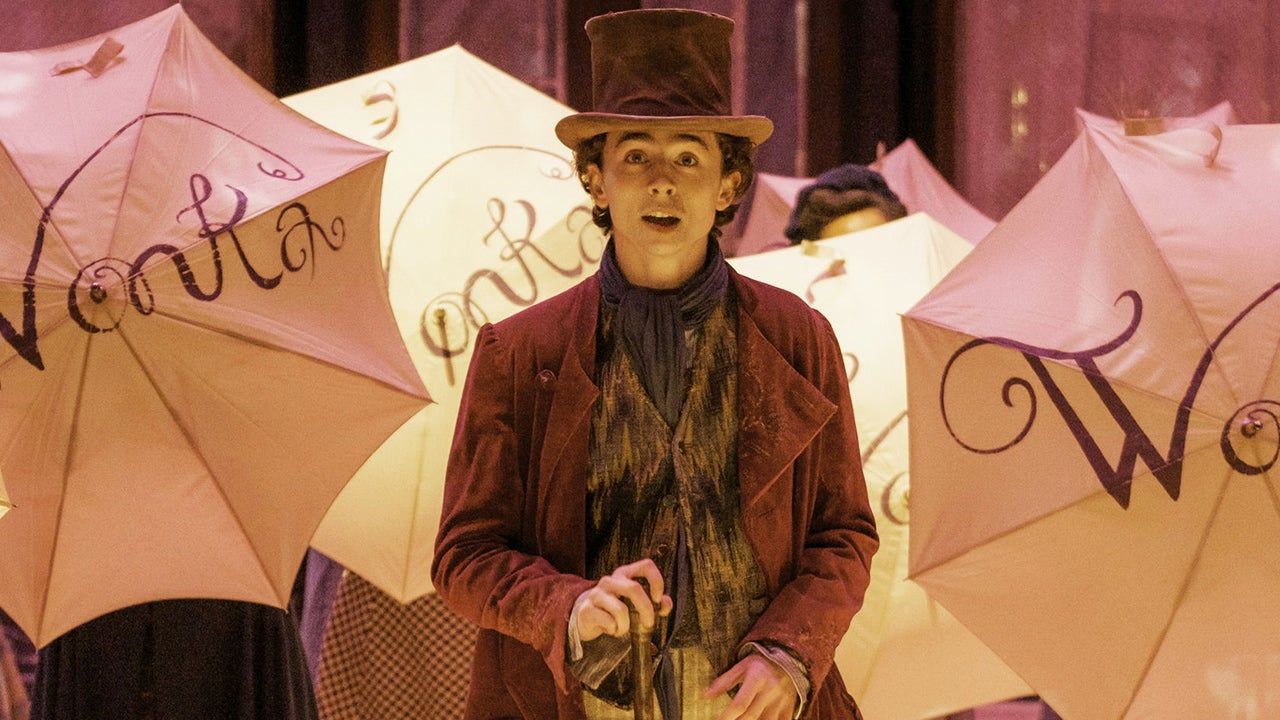
The Bureaucratic Force of Wonka
The latest iteration of Roald Dahl’s classic is a deeply felt ode to entrepreneurship
The last we heard of Roald Dahl, he was the latest victim of what Rod Dreher called “therapeutic totalitarianism” after a cadre of sensitivity readers suggested his foundation make hundreds of changes to the author’s work to make them hip to the times. Augustus Gloop was the victim of fat shaming. Mike Teavee could no longer brandish toy pistols in front of the boob tube. References to dirty colonialist Kipling had to go to make room for the more palatable Jane Austen.
Fortunately, the neo-Puritans abandoned the whole enterprise after the intervention of the PEN Foundation and outcry from authors such as Salman Rushdie. None of this boded well for the integrity of Wonka, Warner Bros. in-production prequel to the author’s six-decade-old Charlie and the Chocolate Factory and its sequel starring perpetual “It” boy Timothée Chalamet.
At this point, a Hollywood Wonka story that retreads its predecessors with some half-hearted CGI and a few catchy songs would have been a course correction. It could have easily skated by on its nostalgia for boomers who grew up on Gene Wilder and the millennials who opt for Johnny Depp’s existential angst in Tim Burton’s remake. Yet, Wonka has much greater ambitions than it ever needed to in a popular culture unafraid of setting records for its increasingly lower bars. And in the hands of Paddington director Paul King, it not only achieves its status as a multi-demographic crowd-pleaser but also offers a cogent rejoinder to the insidious collusion between government and industry that has defined our post-COVID ESG-obsessed existence.
Focusing on Chalamet’s young Wonka as he travels to a nameless, vaguely European metropolis to start his first chocolate shop, King’s film traces the rise of one of children’s literature’s most beloved anti-heroes. Though working within the legacy of its 1971 and 2005 bigscreen predecessors, Wonka is somehow able to integrate the former’s gonzo dadaism and the latter’s neo-Gothic Freudian paranoia into its own unique aesthetic, paying homage without the clunky direct allusions that torpedo most franchise revivals.
King’s world of Wonka is a mix of urban area mired in managed decline and the certain corners where its hero’s obliviousness to anything but childlike wonder have been allowed to take root. While eternal New Yorker curmudgeon Richard Brody mocked the movie for King’s use of “empty magic” as a plot device, the filmmaker’s lack of concern for clunky exposition and opportunistic world-building for the purpose of future sequels and holiday merchandising is a blessing.
Wonka grew up as a nomad under the guidance of his now-deceased gypsy mother (Sally Hawkins). He longs to make her proud, which has led to his unbridled entrepreneurial spirit and nonchalant mastery of the magical. His greatest hurdle is coming to terms with the adult world, a place that requires him to acknowledge his mother’s death and deal with the more sinister side of crony capitalism embodied by the movie’s “Chocolate Cartel.”
While most family films (and their audiences) are content with a two-hour diversion with lots of bright colors to distract the kids and a few funny double entendres to keep the adults off their phones, King has proven himself a filmmaker who embraces the pure imagination of childhood with a gift for reminding the adults in the room about what life was like when filled with such whimsy. It’s why Paddington 2 is locked into a constant battle with Citizen Kane as the best-reviewed film of all time on Rotten Tomatoes. It’s also why nothing in Wonka feels cynical except for the villains that threaten to quell Willy’s limitless ambition.
The enemies of Wonka are not supervillains with a master plan. They are a trio of chocolate company CEOs that aims to protect their mediocrity at all costs. Led by Slugworth (Paterson Joseph), the Chocolate Cartel has managed to infiltrate every aspect of life in the city. It tramps down on joy with the police force in its pocket, succumbing to the temptations of a tightly guarded chocolate supply hidden in the basement of an ornate cathedral. Slugworth’s right and left hand of the law are the city’s bishop, Father Julius (a delightfully droll Rowan Atkinson giving his Mr. Bean persona a darkside), and Chief-of-Police (Keegan-Michael Key), a tragically buffoonish cop who has sold his integrity for an endless chocolate supply that makes him more comically rotund with each passing scene.
Yet, such underhandedness is no match for Wonka’s eternal optimism. He knows his purpose and is guided by the sheer joy of creation that makes life worth living. Wonka’s tunnel vision may lead those around him to think he’s a nutter. But they’ve given up hope, trapped by a utopia of rules and small potatoes, lifelong bureaucrats in a metropolis where control has become a calling. It’s up to him to provide that shock to the system—to make them realize the powers of immutable freedom.
In a blockbuster movie that willfully embraces such big ideas, Wonka’s greatest strength may be its central conceit that the banal administrative class has pitted us against each other to achieve barely adequate standards from which only those mired in hackery benefit. And the only cure is an unequivocal belief that imagination can will the wonderful into being.
Wonka is now playing in theaters.
